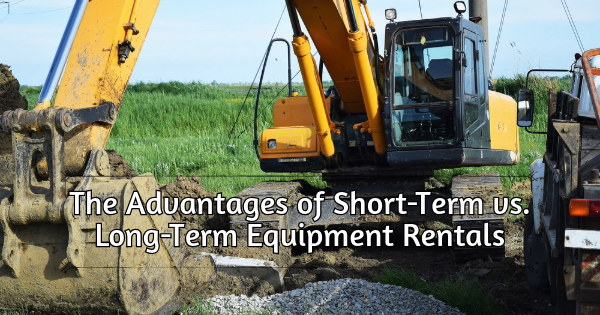In the swiftly evolving landscape of heavy equipment rentals, businesses often find themselves faced with the decision between short-term and long-term rental agreements. Understanding the advantages of each option can lead to more strategic financial and operational outcomes. Whether a construction company requires specialized machinery for a brief project or a manufacturing firm needs consistent access to certain tools, knowing when to opt for short-term or long-term rentals can significantly impact operations and bottom lines.
Short-Term Rentals
Short-term equipment rentals come with a set of distinct advantages that cater to the need for flexibility and immediate solutions. When a sudden project appears on the horizon, short-term rentals allow businesses to quickly acquire essential machinery without the overhead of ownership. This flexibility not only helps in meeting project deadlines but also allows companies to adapt to the ebbs and flows of demand. According to WebFX, the global heavy machinery equipment market is projected to reach $274.84 billion by 2031, highlighting the growing demand for versatile rental options in a market ripe with potential.
Long-Term Rentals
Long-term heavy equipment rentals, on the other hand, provide stability and cost-effectiveness for businesses with ongoing or extensive projects. By entering into longer rental agreements, companies can often negotiate better terms and lower rates, ultimately reducing their overall expenses. This predictability is particularly advantageous for organizations that require uninterrupted access to specific machinery without the burden of maintaining and storing owned equipment. Furthermore, long-term rentals typically include maintenance services, ensuring that the equipment remains in optimal condition and minimizing downtime.
Technology and Equipment Options
Another significant advantage of both short-term and long-term heavy equipment rentals is the ability to access the latest technology and equipment. By renting instead of buying, companies can benefit from state-of-the-art machinery without the commitment of ownership. This access to the latest models can enhance efficiency and improve project outcomes, making both short-term and long-term rentals attractive options depending on a business’s unique needs. The ability to scale equipment usage based on current technology trends allows firms to remain competitive without substantial financial investment.
The choice between short-term and long-term equipment rentals largely depends on a company’s specific needs and market conditions. Short-term rentals offer flexibility and adaptability for immediate projects, while long-term rentals ensure stability and cost savings for sustained efforts. As the global heavy machinery equipment market continues to expand, understanding when and how to leverage these rental strategies will be key to success in an ever-changing economic environment. Choosing the right rental option can provide businesses with both operational advantages and financial benefits, ensuring they remain agile and competitive in their respective industries. For more information, call Sy Aggregate today!

